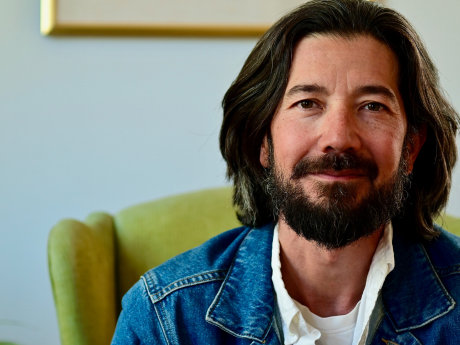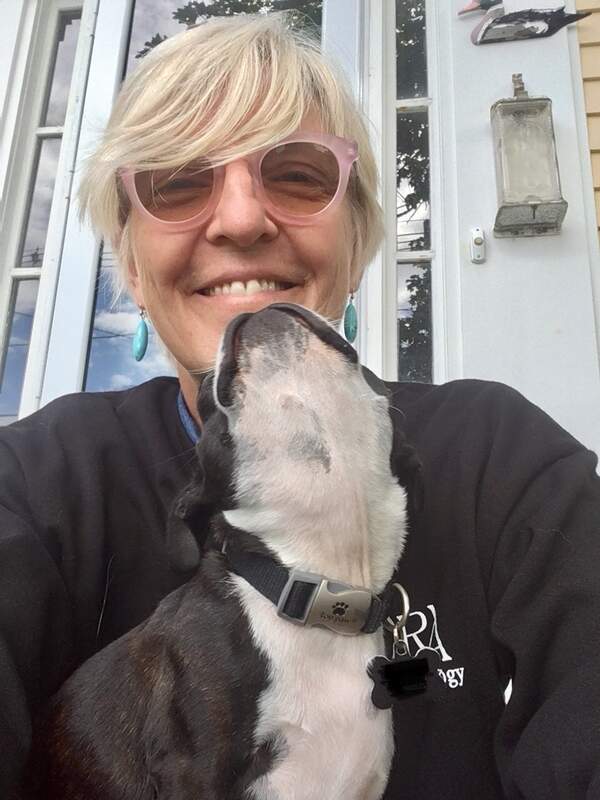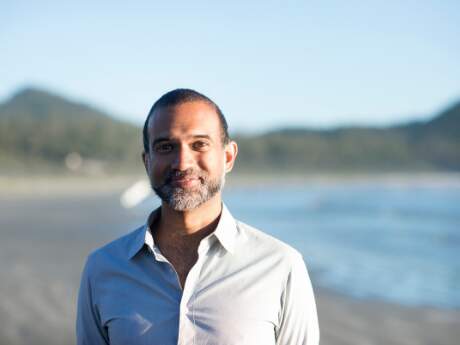Stopping By
Stopping by with Ryo Yamaguchi

Ryo Yamaguchi is the publisher of Copper Canyon Press, a mission-driven, independent press that has been dedicated to poetry for over fifty years. He has worked in publishing for over ten years, including roles as the marketing director at Wave Books and a promotions manager at the University of Chicago Press. He is the author of The Refusal of Suitors, a collection of poems published by Noemi Press, and he has been a book critic and poetry features writer for Harriet at the Poetry Foundation and Michigan Quarterly Review, among other outlets. His poems have appeared in numerous publications, including The Best American Poetry 2020. Ryo lives in Santa Fe, New Mexico.
What is the last thing you listened to that moved you?
Yasmin Williams’s “Harvest,” a collaboration between Kaki King and Darian Donovan Thomas from Williams’s recent album Acadia, has touched complex emotional combinations for me. I’ve seen Williams perform at a few festivals, and I’ve been immediately charmed by both her virtuosic style (which I hear as a “Primitive Guitar”) and the fact that she developed it playing Guitar Hero (!). That nerdom-to-beauty grabbed me right away, and then oh, the satisfaction of this album release, Acadia, and how deeply exploratory (and collaborative) it is. This track, “Harvest,” is optimistic, a refined Appalachian sound that evokes a kind of agrarian dawn and participates in numerous nostalgias (both fraught and comforting). That sense is offset/complemented by the chill bell tones of the guitar harmonics and the angular violin that further layers harmonics and overtones. It’s at once old and futuristic, hopeful and edgy. It grounds me in folk music while pushing me into forms of minimalist trance. It’s beautiful.
What is a book that changed or greatly influenced your life?
Aye yai yai, it’s going to have to be a few things. Around ten or fifteen years ago, I found myself in a wonderful period of reading and reviewing books, mostly poetry, and there was a set of works that informed what I might simply call an “existential” orientation to art. Juliet Patterson’s Threnody is the first to mind, and what I might center here. It’s a haunting collection of poems gathered around Colony Collapse Disorder, or more largely conceived, special extinction. She breaks lines in a way that evokes pencil sketches: “Cold and waxwings. / Waxwings in the / wind / cold some wild pole, / so sky then, new / of winter.” And among these spare depictions of nature, brief glimpses of the speaker, her wrist or hand there in view. That kind of blew my mind—not so much the introduction of a meta-awareness of the speaker, but how elemental it feels in the poems, as though the speaker were just cohering upon the act of speech. I realized then that a poem is always, upon every reading, coming into being. That that realization came in a book set against the backdrop of extinction was extremely profound. Around that same time, I was reading great works of more essayistic poetry—Shane McCrae’s The Animal Too Big to Kill and Rainer Diana Hamilton’s Universe coming to mind—books full of highly energized propositional reasoning that could only be possible, it occured to me then, in poetry. This all culminated in a big project I had of reading (not reviewing, ha!) Immanuel Kant’s Critique of Pure Reason. A wildly insufficient synthesis of all of this: the poem as the incarnation of consciousness.
What is your first memory of poetry?
I’ve spoken elsewhere about wonderful teachers, and one of my first real memories of engaging poetry was in Mr. Saldaña’s junior-year English class, reading “The Love Song of J. Alfred Prufrock.” But let me go back further to second or third grade and a Valentine’s Day project. I probably misremember this all, but what’s there for me, as an object of memory, is this palm-sized cutout of a heart, construction-paper red on one side, white on the other, a blank space waiting for our poem. It’s the first time I can remember trying to rhyme, and I thrilled to it. That was doubled with the effort of fitting my clumsy handwriting, in my first ever attempt at making a line, into the undulating shape of the heart. What I remember is drafting something like a Dickinson poem, perfect common meter. That’s probably wrong, but what’s right is the fact that I felt, for the first time, language locking into place. Language fitting, and for it, becoming free. That it was a love letter to my mom, all the better.
What do you see as the role of art in public life at this moment in time?
Is it too obvious to say that it is critical? I get the great pleasure of frequently speaking with Jorie Graham, and I paraphrase a sentiment from her here that has become something of a guiding philosophy for myself personally and my work at Copper Canyon Press: Art enables us to imagine the future. It sounds simple, but it’s crucial. At so many turns, the future feels already foreclosed: environmental collapse, political chaos, social degradation. Art cuts us loose from these horizons, sometimes by looking precisely and directly at them (along with past and present realities too, of course). And it does so collectively; its very purpose is that it is shared, that we approach the frontiers of our own understanding, deep in the privacy of our individual experiences, together.
How do poems help you make sense of your daily life and the world around you?
In so many ways, but how about this: they give my life continuity. Reading a poem (let’s say Robert Hayden’s “Those Winter Sundays,” and a shoutout to Pádraig Ó Tuama for that) brings me back into that poem’s overlapping moments—the narrative moment of the poem, and all the moments in my life in which I encountered it. Just like the speaker of Hayden‘s poem, I've sometimes misperceived someone’s severity as unkindliness. “Those Winter Sundays,” when I read it, reminds me of all the times I've had that experience before. Of course, that lesson isn’t helpful in every situation—we all know there are bona fide jerks out there—but this poem reminds me that that judgment is an issue for me; it reminds me about a way I want to be. This scales. How do I think about the horrors of the world in which we live right now? First, from within the “blueblack cold” of the Hayden poem.
What do you want people to take away from your work?
Let me respond not from the practice of writing poems—which, I admit with guilt and sorrow, I can’t maintain right now—but from my work publishing them. And that’s pretty simple; I really just want folks to find poems in their lives, to have poems be a place to which they can go. I often talk about the simultaneity of being both inside a poem and carrying a poem inside of you, and so this is a literal taking-away. Publishing, for me, is an attempt to tend an ecosystem around this small endeavor: presenting, sharing, promoting, and putting into conversation all of these micro-opportunities for a poem to make some small adjustment in the mind/body/soul of the reader. As a strongly mission-driven press, we have the chance (the requirement) to do this work with a deliberate sense of value, to center and support the poets, foster camaraderie and mutual growth among staff, and try to earnestly meet readers and partners where they are in their own experience of literature. If someone with whom I’ve interacted feels any of these values in that interaction, then I know my work is at least on the right track.
Are you working on anything right now that you can tell us about?
I’ve got a long piece of prose I’ve been working on for five years now. My wife and I had the (probably) unusual experience of traveling through the first year of the pandemic. In December 2019, we set out on a year-long road trip across the U.S. The pandemic found us literally living out of our car and a little two-person tent (in March 2020, in the middle of the Grand Canyon, as friends are now tired of hearing me recount). We kept on, though, traveling through mostly empty, wild places, and I wrote about the experience both along the way and, increasingly, after the fact. It’s a big, messy text that—because I’m forever a student (and amateur)—experiments with a lot of different styles. It’s wildly rewarding to edit, though I can only do it in fits and starts, hence the five-year thing. Maybe it will be a book one day. And hopefully, too, I’ll be writing poems again.


